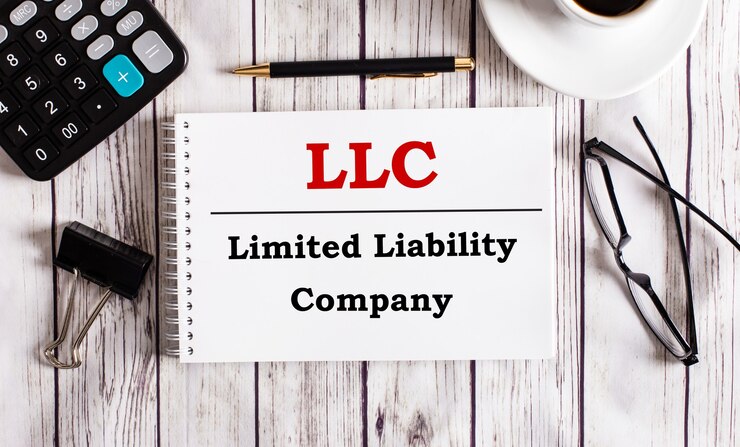Business Update: How Wyoming Law Provides Anonymity For LLcs
by Arnab Dey Legal Published on: 15 July 2023 Last Updated on: 30 January 2026

In recent months, we have observed a shift in the business dynamics of the United States. Particularly, corporate relocation to Wyoming has seen a notable spike. The sparsely populated Western state, traditionally known for its tourism and mining industries, is carving out a new niche for itself in the realm of limited liability companies (LLCs).
In the first half of 2023 alone, there has been a 15% increase in LLC formations compared to the same period last year, as per Wyoming Secretary of State records.
Why Wyoming?
The primary driving force behind this trend can be traced back to Wyoming’s robust privacy laws. Contradictorily to other states, Wyoming provides a higher degree of anonymity for LLCs. This protection extends to both the identities of members and managers, as well as financial transactions. The unique laws shield businesses from the prying eyes of the public, thereby offering an extra layer of security.
Benefiting From Anonymity
In the era of digital transparency, where information is often only a click away, the element of anonymity is increasingly valuable. For businesses, it offers a multitude of advantages. Notably, it protects the privacy of owners, prevents unwarranted lawsuits, and shields against the potentially damaging effects of public scrutiny.
Wyoming’s privacy laws ensure that the names and addresses of members or managers do not become a part of the public record. In most other states, this information is freely accessible, often leading to privacy invasions or unsolicited contact.
To understand the importance of this feature, consider a high-profile entrepreneur who wants to avoid the spotlight for a variety of reasons. In this case, the anonymity offered by Wyoming’s laws is immensely beneficial.
Broader Impacts: The Effects Of Political Instability On Financial Transparency
Political and economic stability plays a key role in shaping the business landscape. A recent study highlights this fact, examining the impact of ISIS’s presence in Iraq on transparency related to corporate governance and economic reporting. The study, conducted on an illustrative of 35 firms that were listed on the Iraqi Stock Exchange between 2012 and 2018, uncovers significant correlations influenced by the destabilizing effects of ISIS.
Findings reveal a negative correlation between board independence, management team stability, audit committee independence, financial analysis transparency, along with remuneration of the board of directors. Contradictorily, managerial ownership, board expertise as well as audit committee expertise exhibited a positive correlation with financial transparency.
Most notably, the presence of ISIS directly impacted the relationship between the director’s independence board and remuneration and economic reporting transparency. In an environment of macroeconomic unpredictability caused by terrorist activities, the perception of the managers about their company’s future performance was negatively affected. This resulted in unfair judgments as well as estimations. Thereby significantly influencing the transparency of financial reporting.
This study is the first of its kind to examine such relationships in the context of the Iraq Stock Exchange pre and post-existence of ISIS’s presence. The experience of Iraq may hold valuable insights for other countries facing similar political as well as economic instability.
While these findings may seem distant from the privacy laws of Wyoming, they highlight the broader implications of stability on business operations and transparency. They serve as a reminder that factors beyond immediate business environments can have profound impacts on corporate authorities and financial transparency. As we consider future trends in privacy laws and business operations, it’s crucial to consider these broader geopolitical factors.
How Wyoming Maintains This Balance

The state requires LLCs to keep accurate records but does not mandate the submission of these documents unless under an official audit or legal investigation. This ensures that while businesses operate responsibly, the privacy of members and managers is still respected.
By striking a balance between privacy and responsibility, Wyoming is providing an attractive proposition for businesses. The laws create a safer and more private environment for businesses without sacrificing the principles of transparency and corporate responsibility.
For those interested in the intricate details of these laws and want to read more, the Wyoming LLC Attorney website provides comprehensive information on Wyoming’s privacy laws and their implications on LLCs.
A Closer Look At Wyoming’s Privacy Laws
Wyoming’s unique privacy laws do not necessitate LLCs to list individual members or managers on their annual reports. This is a deviation from the norm, where such details are mandatory and public in most states. Similarly, the state doesn’t require disclosure of the ownership structure, financial details, or operating agreements of an LLC. This information remains confidential unless specifically requested by a court order.
Comparisons To Other States
Contrasted with states like California and New York, Wyoming’s privacy laws stand out. In many jurisdictions, member names and addresses are public, potentially exposing businesses to unwanted attention. Moreover, unlike states such as Delaware, Wyoming doesn’t impose a franchise or business tax on LLCs, adding to its appeal.
Implications For Businesses
The anonymity provided by Wyoming’s laws can protect businesses and their owners from frivolous lawsuits and unwarranted public scrutiny. This environment empowers entrepreneurs to focus on their business objectives without distractions. Furthermore, businesses can maintain financial privacy, which is particularly beneficial for startups and small businesses.
Privacy And Future Trends
Wyoming’s privacy-friendly LLC laws may set the trend in an era where privacy is increasingly valued. As other states strive to stay competitive, similar measures might be considered. This could result in a national shift towards privacy-focused business laws, significantly reshaping the perception of corporate privacy. Wyoming’s unique approach to balancing business transparency with privacy could potentially influence the future of business privacy laws in the United States.
In conclusion, Wyoming’s unique privacy laws for LLCs, providing a balance between anonymity and transparency, are drawing more businesses to the state. These laws could potentially shape future national business privacy legislation. However, as demonstrated by the impact of geopolitical instability in Iraq, broader global factors can significantly impact corporate governance and financial transparency.
Read Also:



































































































